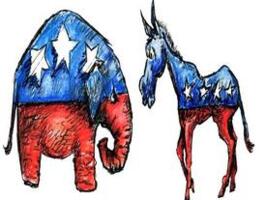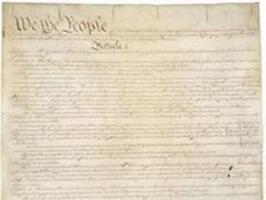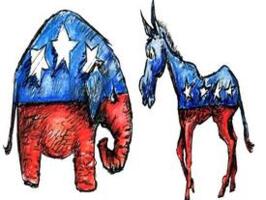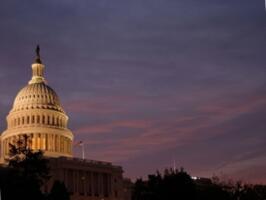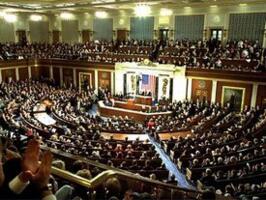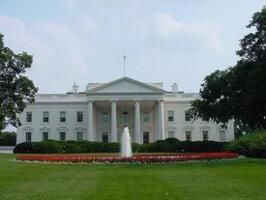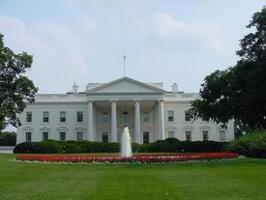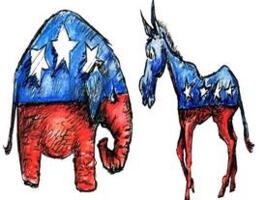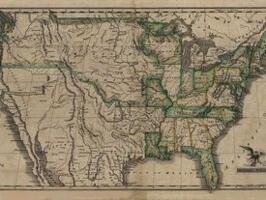71% Say Democratic Leaders Liberal, Republicans Leaders Conservative
Voters continue to see a sharp ideological difference between the leaderships of the two major political parties, according to a new Rasmussen Reports national telephone survey.
Seventy-one percent (71%) of Likely U.S. Voters describe the leadership of the Democratic Party as liberal, and the identical number (71%) believe the leadership of the Republican Party is conservative. These findings include 43% who think Democratic leaders are Very Liberal versus 36% who feel the GOP leadership is Very Conservative. (To see survey question wording, click here).
(Want a free daily e-mail update? If it's in the news, it's in our polls). Rasmussen Reports updates are also available on Twitter or Facebook.
This national survey of 1,000 U.S. Likely Voters was conducted on June 23-24, 2012 by Rasmussen Reports. The margin of sampling error is +/- 3 percentage points with a 95% level of confidence. Field work for all Rasmussen Reports surveys is conducted by Pulse Opinion Research, LLC. See methodology.
